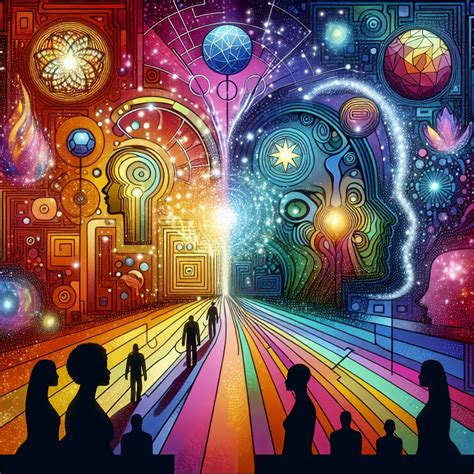Psychedelics, a class of substances known for their mind-altering effects, have long been at the center of both intrigue and controversy. As research into their therapeutic potential gains momentum, especially in the treatment of PTSD and other mental health conditions, a critical question arises: How do these substances challenge the traditional paradigm of randomized controlled trials (RCTs)? This topic has sparked vigorous debates among researchers, patients, and the public alike, each bringing a unique perspective to the table.
In the 1940s and 50s, LSD was hailed as a groundbreaking discovery in mental health treatment before being banned. Now, decades later, the resurgence of interest in psychedelics for their therapeutic benefits marks a significant shift in both public perception and scientific inquiry. Companies like MindMed are at the forefront, pushing for FDA approval of compounds such as MM120. However, as user s4mw1se notes, this revival is bittersweet, highlighting the lost decades of potential progress. The experiences from clinical trials of DMTx, where participants report talking to entities and shared hallucinations, are reshaping how we understand the human mind’s capacity to model reality.
The debate over the nature of these experiences is intensifying. Commenters like BriggyDwiggs42 emphasize that we currently lack the tools to conclusively determine whether these experiences are purely brain-generated or if they potentially open a window to an external reality. The perspective that consciousness could transcend space-time adds another layer to the discussion, as pointed out by deepvibrations and r2_pilot. This ambiguity challenges the very foundation of how clinical trials are conducted, especially the gold standard of double-blind placebo-controlled studies.
From the standpoint of clinical rigor, the concern lies in the profound placebo effect that psychedelics seem to invoke. The traditional placebo, akin to sugar pills, is often inadequate when the treatment involves a substance with unmistakable psychoactive effects. This unique challenge was highlighted by commenters like mbesto, briggyDwiggs42, and tsimionescu, who pointed out the high placebo response rates in short-term mental health trials. This phenomenon raises critical questions about how to design trials that accurately capture the efficacy of psychedelics without being confounded by placebo effects.
The role of belief and perception in the therapeutic effects of psychedelics cannot be overstated. Commenters like nathan_compton and mythrwy delve into the notion that our entire perception of reality is subjective and shaped by our neurological framework. Mystical and transcendental experiences induced by psychedelics can have significant therapeutic value by offering new perspectives on one’s life and traumas. These experiences often lead to lasting changes, something that traditional psychiatric medications rarely achieve. This perspective challenges the reductionist view that only ‘objective’ effects of drugs should be considered in evaluating their therapeutic potential.
Moreover, the methodological challenges that psychedelics pose to RCTs bring to light the broader issue of how we understand and measure consciousness and mental states. The dialogues from the comments reflect a spectrum of opinions, from outright skepticism about the external reality of psychedelic experiences to an acknowledgment of their profound personal and therapeutic impacts. This calls for a reevaluation of how clinical trials are designed and interpreted, especially given that the subjective experience is a critical component of the therapeutic process for mental health conditions.
One potential solution could be the integration of mixed methods in clinical trials, combining qualitative and quantitative data to capture the full spectrum of psychedelic experiences. This was hinted at by tsimionescu, who argued that the hallucinations themselves might hold the key to their therapeutic efficacy. Instead of dismissing these experiences as mere side effects, we should look at how they can be systematically included and analyzed within the framework of clinical research.
The integration of new technologies like AI and machine learning could also revolutionize the way we approach these studies. Using AI to predict and control for the vast array of variables involved in psychedelic experiences could lead to more nuanced and accurate outcomes. This idea was briefly touched upon by spacetimeuser5, who suggested that the future could see AI playing a more significant role in facilitating RCTs, thereby bridging the gap between rigors of scientific methodology and the unique nature of psychedelic treatments.
In conclusion, the growing body of evidence supporting the therapeutic potential of psychedelics is too compelling to ignore. However, as these substances challenge the standard methodologies of clinical trials, it becomes crucial to adapt and innovate our research paradigms. By embracing both the objective and subjective dimensions of these experiences, we can unlock new pathways in mental health treatment that not only alleviate symptoms but also promote profound, lasting healing. This evolving landscape will undoubtedly require a collaborative effort among scientists, therapists, patients, and policymakers, ensuring that the promise of psychedelics is fully realized in a scientifically grounded and ethically responsible manner.


Leave a Reply